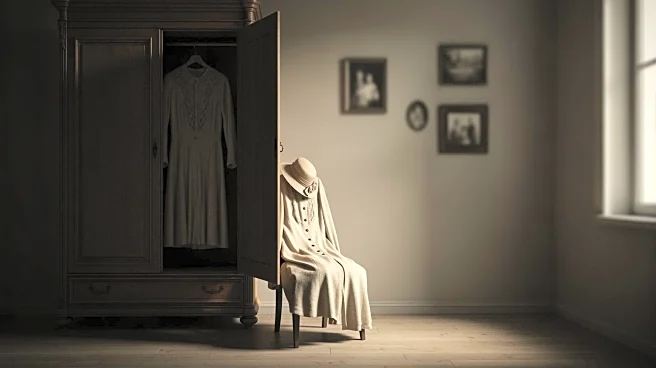What's Happening?
An Italian man from Mantua has been accused of impersonating his deceased mother to fraudulently claim her pension. The 56-year-old unemployed nurse allegedly dressed as his late mother, Graziella Dall'Oglio, who passed away three years ago at the age
of 82. He reportedly concealed her body at their home, allowing it to mummify, while he continued to collect her pension. The man allegedly went to a government office in Borgo Virgilio, dressed in women's clothing and makeup, to renew her identity card. His disguise raised suspicions due to his thick neck and deep voice, prompting an employee to alert the police. Upon investigation, authorities discovered the mummified body of Ms. Dall'Oglio hidden in the house. The man is now under investigation for benefit fraud and illegally concealing a body.
Why It's Important?
This case highlights significant issues related to identity fraud and the exploitation of social welfare systems. The incident underscores the need for stringent verification processes in government offices to prevent fraudulent activities. It also raises questions about the oversight of pension distributions and the potential for abuse when beneficiaries pass away. The case could lead to increased scrutiny and reforms in how pensions are managed and verified, impacting both government policy and public trust in social welfare systems. Additionally, it reflects broader societal challenges in addressing elder care and the responsibilities of family members in reporting deaths.
What's Next?
Authorities are conducting a postmortem to determine the exact cause of Ms. Dall'Oglio's death, although it is suspected to be from natural causes. The investigation into the son's actions will likely continue, potentially leading to legal proceedings. This case may prompt Italian authorities to review and tighten regulations surrounding pension claims and identity verification processes. It could also lead to increased public awareness and reporting of similar fraudulent activities, as well as discussions on ethical responsibilities in family care.
















